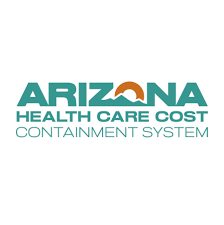There were 2 important actions this week regarding public health & access to care. The U.S. Senate released their 3rd version of the Better Care Reconciliation Act (BCRA) and House released their Health and Human Services and Appropriations bill for next fiscal year
Let’s start with BCRA.
The Senate released it’s new version of BCRA this week (PDF) but it still hasn’t been evaluated by the non-partisan Congressional Budget Office… so we won’t know the particulars of what the new version would likely do to insurance coverage and premiums until that evaluation is complete (probably next week).
We do know that many things are the same as the previous version of the bill- especially when it comes to the troubling changes that would be made to Medicaid:
-
Like the previous version of BCRA, the new bill would still convert federal Medicaid funding to a per capita allotment (or a block grant) and limit growth in federal Medicaid spending beginning in 2020. Medicaid funding per person would go up with the Medical Consumer Price Index from 2020 – 2024 and by just the regular Consumer Price Index after that- which will likely serve to dramatically cut back Medicaid funding.
-
Phases out the enhanced federal contribution for the expansion population in states like AZ from 90% in 2020 to regular state match in 2024. That means that somewhere between 2020 and 2024 Arizona would drop the expansion population from Medicaid coverage (people from 100% to 138% of FPL).
-
Marketplace plan premium tax credits would be available down to 100% of FPL in 2020 (because those folks between 100 and 138% of poverty won’t be enrolled in Medicaid anymore).
-
Eliminates the individual mandate for everybody to have health insurance.
-
Eliminates the requirement that larger employers provide health insurance.
-
Would let insurers sell currently “non-compliant” insurance plans – meaning insurance plans with very high deductibles and limited benefits (people that buy these catastrophic plans would be eligible for a tax credit). This would serve to reduce premiums (and benefits) for people that elect these plans- but it would shrink the risk pool for people that want more robust (compliant) plans- meaning that premiums for the more comprehensive plans will go up alot.
-
Repeals the mandate to have health insurance and eliminates cost sharing subsidies in 2020.
-
Completely eliminates the Prevention and Public Health Fund in FY19, which is used by every state to support vital public health programs that promote health, prevent disease, and allow for rapid response to emerging public health threats.
_________________
The House Labor, Health and Human Services and Education Subcommittee released their FY18 appropriations bill this week too. Here’s a summary of the funding proposals included in the bill:
The bill decreases the US Department of Health and Human Services’ budget by $542M below last year’s level. It reduces CDC’s budget by almost $200M , which includes $840M in transfers from the Prevention and Public Health Fund (eliminating the fund). Many if not most of these budget cuts would roll down to state and local health departments.
The bill reduces HRSA funding by about $400M (to $5.8B) including a complete elimination of all Title X Family Planning Funds ($300M).
_____________
We’re encouraging AzPHA members to send messages to our Senators urging them to focus on supporting a Senate bill that: 1) protects future funding for Medicaid; 2) allows folks with pre-existing conditions to be able to continue to have access to affordable health insurance; and 3) protects the Prevention and Public Health Fund.
Senator Jeff Flake
Russell Office Building 413
Washington, D.C. 20510
(202) 224-4521
Twitter: @JeffFlake
Senator John McCain
Russell Office Building 218
Washington, DC 20510
(202) 224-2235
Twitter: @SenJohnMcCain

